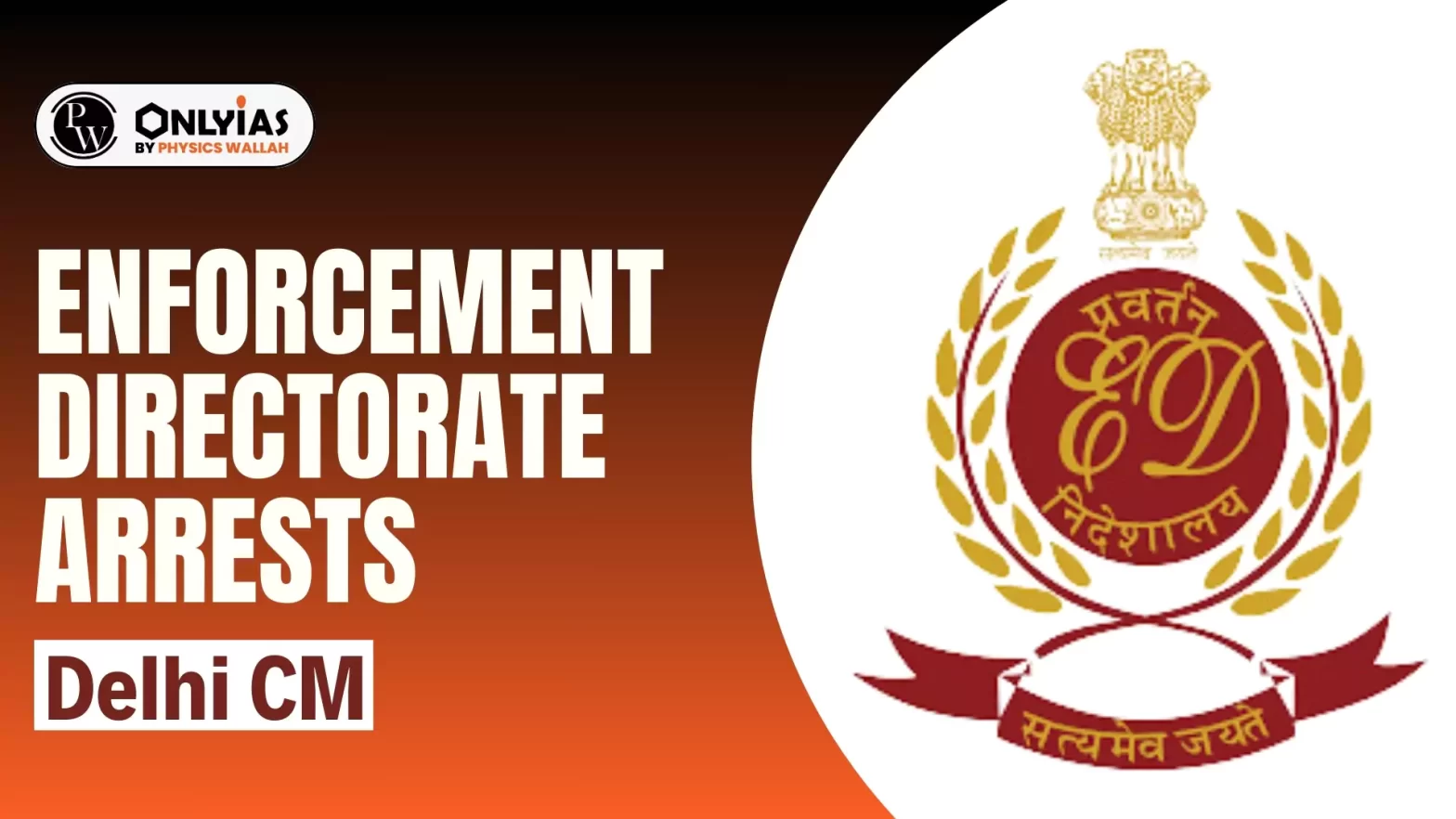![]() 23 Mar 2024
23 Mar 2024

Recently, the Delhi Chief Minister was arrested by the Enforcement Directorate (ED) on charges of corruption and money laundering in the formulation and execution of the Delhi government’s excise policy for 2021-22, which was later scrapped.
| Relevancy for Prelims: Money Laundering, Questionable Searches Under The Money Laundering Act, Enforcement Directorate (ED), and Enforcement Directorate-States Tussle.
Relevancy for Mains: Issues Related to Corruption in India. |
|---|
Judicial Custody
|
|---|
| Earlier Such Cases
In February 2024, Jharkhand Mukti Morcha (JMM) leader and then CM Hemant Soren was arrested by the ED in a money-laundering case. Soren resigned as CM after his arrest, and Seraikela MLA Champai Soren replaced him. Similarly, in 2001, Tamil Nadu CM J Jayalalithaa was arrested in a disproportionate assets case, and O Paneerselvam replaced her till she obtained bail. This was repeated in 2014, when she was convicted and charged in the same case. Paneerselvam resigned in both 2001 and 2014 after she obtained bail and a stay of her conviction, respectively. |
|---|
About the S. Ramachandran versus V. Senthil Balaji Case
|
|---|
Role of Lieutenant Governor (LG)- A Unique Scheme for Delhi:
|
|---|
About Delhi Excise Policy 2021-22
|
| Must Read | |
| NCERT Notes For UPSC | UPSC Daily Current Affairs |
| UPSC Blogs | UPSC Daily Editorials |
| Daily Current Affairs Quiz | Daily Main Answer Writing |
| UPSC Mains Previous Year Papers | UPSC Test Series 2024 |
<div class="new-fform">
</div>